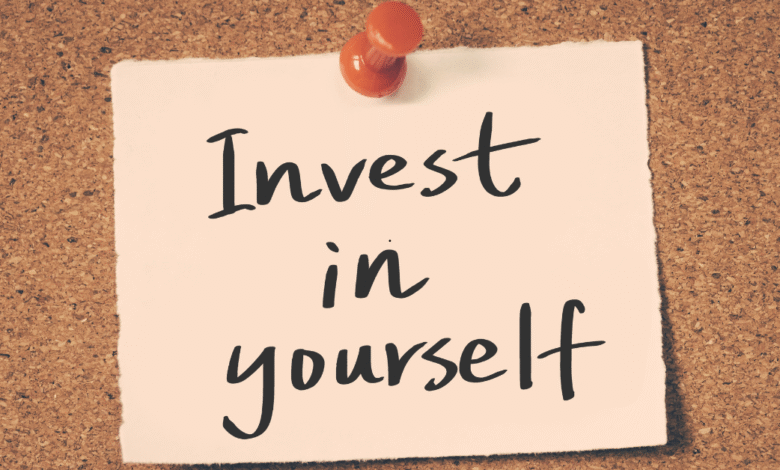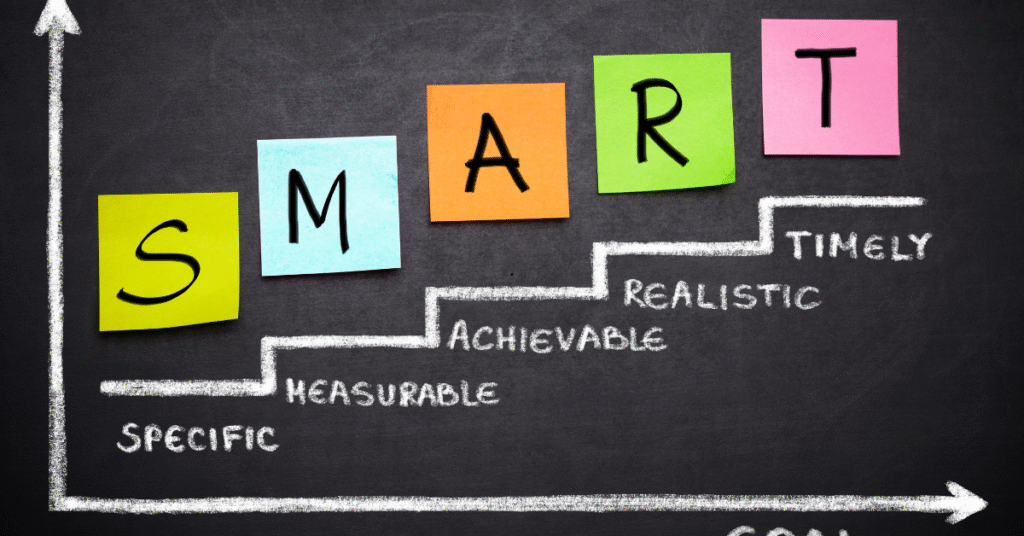10 Best Ways To Invest In Yourself As A Woman

Let me guess. You’ve been running on autopilot for so long that you can’t remember the last time you did something just for YOU.
Between juggling work, family, relationships, and a million other responsibilities, the idea of investing in yourself probably feels like a luxury you can’t afford, right?
Wrong. Investing in yourself isn’t selfish or indulgent. It’s actually the smartest move you’ll ever make. Think about it: you can’t pour from an empty cup, and you definitely can’t build the life you want if you’re running on fumes.
So buckle up, because we’re about to talk about real, practical ways to invest in yourself as a woman. No fluff, no generic advice you’ve heard a thousand times. Just honest, actionable strategies that’ll help you grow, thrive, and maybe even surprise yourself along the way.
What Does It Actually Mean To Invest In Yourself?
Before we jump into the how-to part, let’s clear something up. Investing in yourself isn’t about buying fancy stuff or treating yourself to endless spa days (though hey, no judgment if that’s your thing).
It’s about making deliberate choices that improve your quality of life. We’re talking about gaining knowledge that helps you make smarter decisions with your money, your career, your relationships, and your overall well-being.
When you invest in yourself, you’re essentially saying, “I’m worth the time, effort, and resources it takes to become the best version of myself.” And honestly? You absolutely are.
Why Should You Even Bother Investing In Yourself?
Fair question. Life’s already expensive and exhausting, so why add one more thing to your plate?
Because the payoff is massive. I’m talking life-changing, game-shifting massive. Let me break down what you stand to gain:
1. You’ll Actually Be In Control Of Your Life
When you invest in developing skills and knowledge, you become self-sufficient. You’re not waiting around for someone else to rescue you or give you permission to live your best life.
Financial independence is a huge part of this. When you’ve got your money sorted and you’re building wealth on your own terms, you call the shots. Want to retire early? Start a business? Travel the world? You can actually make it happen instead of just daydreaming about it.
2. Your Career Will Take Off
Here’s something they don’t tell you enough: the people who keep learning and growing are the ones who get promoted, land better opportunities, and earn more money.
Companies love employees who invest in themselves because it shows initiative and commitment. When you’re constantly upgrading your skills, you become irreplaceable. And when you’re irreplaceable? Your earning potential skyrockets.
3. You’ll Feel Better, Period
Money matters, but so does your mental and physical health. When you prioritize taking care of yourself (and I mean really taking care of yourself, not just bubble baths and face masks), your entire quality of life improves.
You’ll have more energy, better focus, and the emotional resilience to handle whatever life throws at you. Plus, you’ll actually enjoy your life instead of just surviving it.
4. You’ll Inspire Other Women
This might sound cheesy, but hear me out. When you invest in yourself and succeed, other women notice. Your journey becomes proof that it’s possible.
We all need role models who look like us and face similar challenges. By investing in yourself, you’re not just changing your own life. You’re showing other women what’s possible for them too.
5. You’ll Discover What Actually Makes You Happy
Self-investment is basically a journey of figuring out who you really are and what you actually want (not what everyone else wants for you).
When you take the time to explore your interests, develop your talents, and pursue your passions, you’ll experience a level of fulfillment that no amount of external validation can provide. That’s the good stuff right there.
10 Best Ways To Invest In Yourself As A Woman
Are you ready to take charge and dominate various areas of your life? Here are several impactful ways to invest in yourself as a woman:
1. Build Your Circle: Network And Find A Mentor

Okay, let’s get into the practical stuff. First up: your network.
I know, I know. Networking sounds boring and corporate and maybe even a little fake. But here’s the truth: the people around you have a massive impact on your success.
Why You Need Other People In Your Corner
No woman is an island. The most successful women I know didn’t get there alone. They had mentors who guided them, peers who supported them, and a network of people who opened doors for them.
Think about it. Someone out there has already solved the problem you’re struggling with. Someone has already walked the path you’re trying to navigate. Why reinvent the wheel when you can learn from their experience?
How To Actually Build Your Network
Start with people you already know. Reach out to colleagues, former classmates, or women in your industry who inspire you. Join professional groups, attend events (virtual counts!), or participate in online communities related to your interests.
And here’s a pro tip: be genuine. People can smell fake networking from a mile away. Focus on building real relationships, not just collecting contacts.
As for finding a mentor? Look for someone who’s a few steps ahead of where you want to be. Reach out respectfully, be clear about what you’re hoping to learn, and be willing to put in the work. Most successful people are happy to help someone who’s genuinely committed to growing.
2. Get Smart About Money

Let’s talk about something that makes a lot of women uncomfortable: money.
For too long, women have been left out of financial conversations. But if you want to invest in yourself effectively, you need to get comfortable with personal finance. Like, really comfortable.
Why Financial Literacy Changes Everything
When you understand how money works, you make better decisions. Simple as that.
You’ll know how to budget without feeling restricted. You’ll understand how to invest for your future. You’ll be prepared for emergencies instead of panicking when they happen. And you’ll have the confidence to negotiate for higher pay or start that business you’ve been dreaming about.
Where To Start Learning
Take a financial education course. There are tons of options out there, from free YouTube channels to structured online programs. Look for courses that cover budgeting, saving, investing, and debt management.
Some solid resources include platforms like Coursera, Udemy, or even your local community college. Many banks and credit unions also offer free financial literacy workshops.
The key is to actually apply what you learn. Knowledge without action is just trivia. Start implementing strategies as you learn them, even if you start small.
3. Build Your Safety Net
Here’s a question for you: if you lost your job tomorrow, how long could you survive on your savings?
If that question made you uncomfortable, you’re not alone. But that discomfort is exactly why we need to talk about saving.
Why Saving Feels Impossible (And How To Do It Anyway)
I get it. Between rent, groceries, student loans, and everything else, saving money can feel like trying to squeeze water from a stone. But here’s the thing: you can’t afford NOT to save.
Start with a realistic goal. Saving 10-15% of your income is ideal, but if that’s not possible right now, start with whatever you can manage. Even $25 a month is better than nothing.
The Actual Strategy That Works
Pay yourself first. That means setting up an automatic transfer to your savings account as soon as you get paid, before you have a chance to spend it on other stuff.
Build your emergency fund first. Aim for 3-6 months of living expenses. Yes, that sounds like a lot. But break it down into smaller milestones. First $500, then $1,000, then keep going.
Use apps like Ally Bank or Marcus by Goldman Sachs for high-yield savings accounts that actually earn you decent interest.
And here’s a little trick: whenever you get unexpected money (a tax refund, a bonus, birthday cash), put at least half of it straight into savings. You won’t miss what you never had in your checking account. 🙂
4. Get Clear On Where You’re Going: Set S.M.A.R.T Goals

Ever feel like you’re working hard but not actually getting anywhere? That’s what happens when you don’t have clear goals.
Goals give your life direction. They turn vague wishes into concrete plans. And when you use the S.M.A.R.T. framework, you dramatically increase your chances of actually achieving them.
What The Heck Is A S.M.A.R.T. Goal?
S.M.A.R.T. stands for Specific, Measurable, Achievable, Relevant, and Time-bound. It’s a framework that forces you to think through your goals instead of just wishing for stuff.
Instead of saying “I want to save more money,” a S.M.A.R.T. goal would be: “I will save $5,000 for an emergency fund by December 31st by automatically transferring $420 to my savings account every month.”
See the difference? One is a vague hope. The other is a plan.
How To Actually Set Goals That Stick
Start by identifying what you actually want. Not what you think you should want, but what genuinely matters to you.
Write down your goals. Something magical happens when you put pen to paper (or fingers to keyboard). Your goals become real.
Break big goals into smaller milestones. Saving $10,000 feels overwhelming. Saving $833 a month for 12 months? That’s manageable.
Review your goals regularly. I check in on mine every month during my financial review. It keeps me accountable and lets me adjust if something isn’t working.
5. Take Care Of Your Body

Your body is literally the vehicle that carries you through life. If it breaks down, everything else falls apart.
I know this sounds obvious, but how many of us actually prioritize our physical health? We say we will, then we skip workouts, eat junk food, and run on five hours of sleep because we’re “too busy.”
Why Your Physical Health Actually Matters For Success
When you’re physically healthy, you have more energy. You think more clearly. You’re more productive. You’re less likely to get sick and miss work. And honestly, you just feel better about yourself.
Plus, healthcare is expensive. An ounce of prevention really is worth a pound of cure. The money you invest in staying healthy now will save you thousands in medical bills later.
Simple Ways To Invest In Your Physical Health
You don’t need an expensive gym membership or a personal trainer (though those are great if you can afford them). You just need to move your body regularly, eat reasonably well, drink enough water, and get adequate sleep.
Find physical activities you actually enjoy. Hate running? Don’t run! Try dancing, hiking, swimming, or even just walking around your neighborhood while listening to podcasts.
Meal prep on Sundays so you’re not tempted to order takeout every night. Keep healthy snacks around. And for the love of all that is holy, drink more water. Your body will thank you.
Schedule your annual checkups and actually go to them. Preventive care catches problems early when they’re easier (and cheaper) to fix.
6. Don’t Neglect Your Mind
Here’s something we don’t talk about enough: your mental and emotional health are just as important as your physical health.
Actually, scratch that. They might be MORE important because your mental state affects literally everything else in your life.
Why Therapy Isn’t Just For “Crazy” People
Let’s kill this stigma right now. Going to therapy doesn’t mean something is wrong with you. It means you’re smart enough to get professional help sorting through the complex stuff we all deal with.
Stress, anxiety, relationship issues, past trauma, negative thought patterns… this stuff doesn’t just go away on its own. It sits in your brain taking up space and energy that you could be using for better things.
Working with a therapist or counselor gives you tools to manage your emotions, process difficult experiences, and develop healthier thought patterns. It’s literally one of the best investments you can make.
Other Ways To Support Your Emotional Health
Beyond therapy, there are plenty of ways to take care of your mental well-being.
Set boundaries. Learn to say no to things that drain you. Limit time with people who bring negative energy into your life.
Practice mindfulness or meditation. Apps like Headspace or Calm make this super accessible even if you’ve never meditated before.
Journal regularly. Getting your thoughts out of your head and onto paper is incredibly therapeutic.
Do things that bring you joy. Read for pleasure. Create art. Spend time in nature. Whatever fills your cup, make time for it.
7. Diversify Your Income

Want to know a secret? Rich people rarely rely on just one source of income.
If you’re serious about investing in yourself financially, you need to think beyond your day job. Multiple income streams provide security, flexibility, and faster wealth building.
Why One Income Stream Is Risky
What happens if you lose your job? Or your company goes under? Or you get sick and can’t work?
When you have only one income source, you’re vulnerable. But when you have multiple streams, losing one doesn’t devastate you financially.
Plus, extra income accelerates everything. You can save faster, pay off debt quicker, invest more, and reach your financial goals years earlier.
Ideas For Building Additional Income
Start a side hustle based on skills you already have. Freelance writing, graphic design, consulting, tutoring, virtual assistance… the options are endless.
Platforms like Upwork, Fiverr, or Etsy make it easy to start selling your services or products.
Create passive income streams. Write an ebook, create an online course, start a blog (like this one!), or invest in dividend-paying stocks.
Rent out stuff you’re not using. Got a spare room? List it on Airbnb. Have a car that sits idle? Try Turo.
The key is to start small and build gradually. You don’t need to quit your job and go all-in on day one. Test ideas, see what works, and scale up from there.
8. Make Your Money Work For You
Savings accounts are great for emergency funds, but if you want to actually build wealth? You need to invest.
I know investing can feel intimidating, especially if you didn’t grow up learning about it. But here’s the truth: it’s not as complicated as the financial industry wants you to think.
Why Investing Beats Saving
Let’s do some quick math. If you put $5,000 in a savings account earning 0.5% interest, in 30 years you’ll have about $5,800. Woo-hoo, right? :/
But if you invest that same $5,000 in the stock market with an average 10% annual return (which is historically accurate), in 30 years you’ll have over $87,000.
That’s the power of compound interest. Your money makes money, and then that money makes more money. It’s basically the closest thing to magic that exists in personal finance.
How To Start Investing (Even If You’re A Complete Beginner)
First, take advantage of any employer-sponsored retirement plan like a 401(k), especially if your company offers matching contributions. That’s literally free money.
Next, open an Individual Retirement Account (IRA). You can choose between a Traditional IRA (tax deduction now) or a Roth IRA (tax-free withdrawals later). For most young women, a Roth IRA is the better choice.
Use beginner-friendly platforms like Vanguard, Fidelity, or Betterment. These platforms offer low-cost index funds that give you instant diversification.
Start with what you can afford. Even $50 a month adds up significantly over time thanks to compound interest.
And please, don’t try to time the market or pick individual stocks unless you really know what you’re doing. Stick with diversified index funds and let time do the heavy lifting.
9. Set Boundaries: Learn When To Say No And Yes
This might be the most underrated way to invest in yourself, but it’s absolutely crucial.
Your time and energy are finite resources. Every time you say yes to something, you’re saying no to something else. The question is: are you making those choices intentionally?
Why Women Struggle With Saying No
We’re socialized to be accommodating, helpful, and agreeable. Saying no feels rude or selfish, so we say yes even when we don’t want to.
But here’s what happens: we overcommit, burn out, and end up with no time or energy for the things that actually matter to us.
Learning to say no isn’t about being difficult or uncaring. It’s about protecting your resources so you can show up fully for the things that truly deserve your attention.
How To Get Better At Setting Boundaries
Start by getting clear on your priorities. What actually matters to you? What are your goals? When you know what you’re working toward, it’s easier to say no to things that don’t align.
Practice saying no without over-explaining. “I can’t commit to that right now” is a complete sentence. You don’t need to justify your decision or provide a detailed explanation.
On the flip side, learn to say yes to opportunities that stretch you in good ways. New experiences, learning opportunities, and chances to grow are worth saying yes to, even if they’re a little scary.
The key is being intentional. Every yes and every no should be a conscious choice that supports your overall goals and well-being.
10. Never Stop Growing

The world changes fast. Skills that were valuable five years ago might be obsolete today. Industries evolve. Technology advances. If you’re not learning, you’re falling behind.
But here’s the good news: learning doesn’t have to mean going back to school or spending thousands on degrees. There are more ways to learn than ever before, and many of them are free or cheap.
Why Lifelong Learning Matters
When you’re constantly learning, you stay relevant in your field. You discover new interests and passions. You become more interesting and well-rounded as a person.
Plus, learning literally changes your brain. It builds new neural pathways, improves cognitive function, and might even help prevent cognitive decline as you age.
Easy Ways To Keep Learning
Read books. Fiction, nonfiction, self-help, biographies… it all counts. If you’re not a big reader, try audiobooks through apps like Audible.
Listen to podcasts during your commute or while doing household chores. There are amazing podcasts on literally every topic imaginable.
Take online courses. Platforms like Skillshare, LinkedIn Learning, and MasterClass offer courses on everything from business skills to creative pursuits.
Learn a new language using apps like Duolingo or Babbel.
Attend workshops, conferences, or webinars in your industry. These are great for learning AND networking.
The specific topic doesn’t matter as much as the habit of continuous growth. Stay curious, stay open, and never stop expanding your knowledge.
11. Bonus: Travel And Expand Your Horizons
Okay, I know not everyone can afford to travel internationally, and that’s totally fine. But if you can swing it, traveling is one of the most transformative ways to invest in yourself.
Why Travel Is More Than Just A Vacation
Travel forces you out of your comfort zone. It exposes you to different cultures, perspectives, and ways of living. It challenges your assumptions and broadens your worldview.
When you navigate a foreign city, try to communicate in another language, or adapt to unfamiliar customs, you build confidence and problem-solving skills that carry over into every area of your life.
Plus, travel creates memories and experiences that enrich your life in ways material possessions never can.
How To Make Travel Happen (Even On A Budget)
Start small. You don’t need to fly to Europe for travel to be meaningful. Explore a nearby city you’ve never visited. Take a road trip to a national park. Even a weekend getaway counts.
Save specifically for travel. Set up a separate savings account and contribute to it regularly. Use travel rewards credit cards strategically to earn points for flights and hotels.
Travel during off-peak seasons when prices are lower. Be flexible with your dates and destinations to snag deals.
Consider alternative accommodations like hostels, Airbnb, or house-sitting through platforms like Trusted Housesitters.
The point isn’t to spend a fortune or visit every country on earth. It’s about exposing yourself to new experiences that help you grow as a person.
Final Thoughts
So here we are at the end, and hopefully, you’re feeling inspired rather than overwhelmed.
Investing in yourself as a woman isn’t about doing everything at once. It’s about making consistent, intentional choices that move you toward the life you want to live.
Start with one area that resonates most with you right now. Maybe it’s finally getting your finances sorted. Maybe it’s prioritizing your health. Maybe it’s building that side hustle you’ve been thinking about for years.
Pick one thing, commit to it, and take action. Then add another. And another. Before you know it, you’ll look back and barely recognize the person you used to be.
Remember, investing in yourself isn’t selfish. It’s necessary. You can’t show up for others, pursue your dreams, or make the impact you want to make if you’re running on empty.
You’re worth the investment. Your dreams are worth pursuing. Your potential is worth developing. So what are you waiting for? Start today. Your future self will thank you for it.








